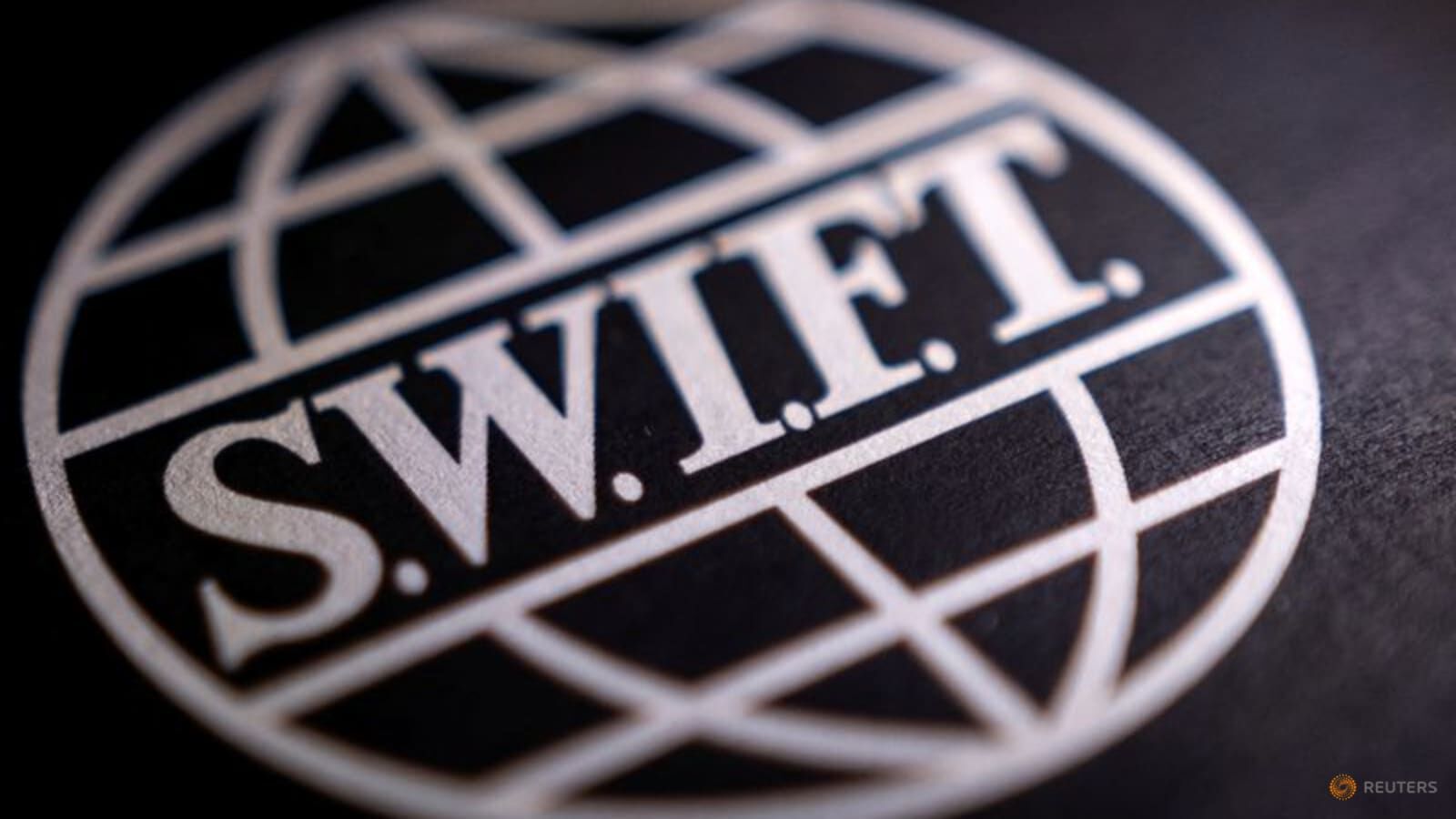Come down harshly

Finally, after initial reluctance from Germany and a somewhat laid-back approach of the United States, the West has decided to ban Russian access to the Society for Worldwide Interbank Financial Telecommunication (SWIFT) payments system — apparently the biggest economic blowback to Russia for its criminal invasion of Ukraine. SWIFT is essentially a communication system that facilitates seamless transaction of money among associated countries. With more than 11,000 financial institutions across 200 countries, SWIFT is indeed a backbone of international financial transactions. It is headquartered in Belgium and "owned and controlled by its shareholders representing approximately 3,500 firms from across the world". The regulatory powers lay with the Central banks of member countries of G10 — Belgium, Canada, France, Germany, Italy, Japan, the Netherlands, the United Kingdom, the United States, Switzerland, and Sweden. A few years ago, the contentious exclusion of Iran from the system had amounted to a loss of one third to its foreign trade. The implementation of the sanction for Russia is still in progress, and the course taken by sanction-imposing countries will determine the extent of deterrent to Russia. In the first place, it is clear that the ban won't be countrywide and cover only a selected number of Russian banks, initially. Western nations have warned that the ban could further be escalated if the situation demands so. Secondly, it is also important to note that the choice of banks and financial institutions that will be banned from SWIFT will determine the potential damage to Russia. In total, while the West has just indicated an intention of going harsh on Russia on this particular front, how much Russia needs to worry is still not made clear. At the same time, Ukraine is witnessing unassailable damages on a daily, rather hourly basis. As a matter of fact, some of the Russian banks are already sanctioned, and if the SWIFT ban is restricted to those only then it would mean too little a deterrence. In contrast, if the banned banks include leading ones like Sberbank SBER.MM and Gazprombank then it would spell a 'catastrophe' for Russia. Notably, Russia is heavily dependent on the SWIFT system; it is the second-largest user (after the US) with around 300 financial institutions associated with the system. Another point of uncertainty is whether the Western nations will allow a window of time to Russian financial institutions for diverting their assets to alternative systems. As the detailed plan for the ban is being chalked out, these aspects will be worth noting. The West, rather than adopting a half-hearted approach, must come down harshly on Russia. It would be pertinent here to observe what are the key factors that have been preventing the West in coming out full throttle against Russia. The ban on access for Russian banks will hit the critical exports of Russia. In that case, importers too will be greatly affected. Europe is heavily dependent on Russia for imports of certain items — most importantly the oil and natural gas. Furthermore, some countries are more dependent than others. Perhaps this is the reason that Germany had initially abstained from strict action in this regard. There is also a threat of direct retribution by Russia that may hamper economic relations with these countries. The West, however, needs to act boldly against Russia. The moot question is how significant the SWIFT ban could prove to be in stopping the Russian onslaught in Ukraine. Here, one needs to factor in Putin's obsession with Ukraine and to what extent it can be balanced through sanctions and bans. Chances of dialogue are building up between the two warring nations and sanctions could tilt the balance towards dialogue by applying pressure. It is true that Russia has been working on an alternative to SWIFT ever since the West imposed sanctions on it in the wake of Crimean annexation. It has its own network — System for Transfer of Financial Messages (SPFS) — which is gaining pace. Russia is also in conversation with China for bolstering alternative arrangements to SWIFT. However, Russia's SPFS is no replacement to SWIFT as of now and the nexus with China is said to be marred with mutual competencies. Eventually, everything boils down to how firm and undivided the West is in its resolve.



